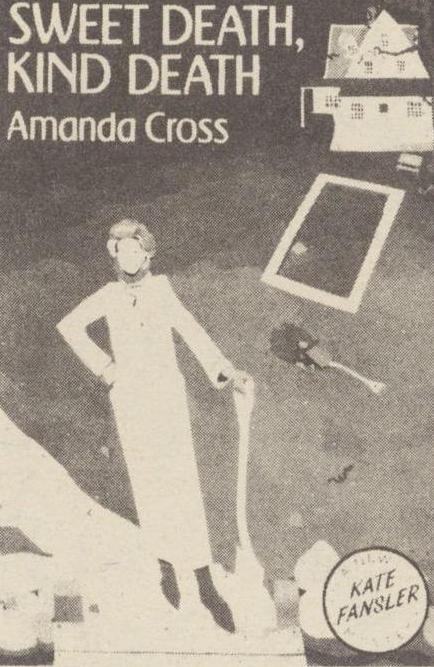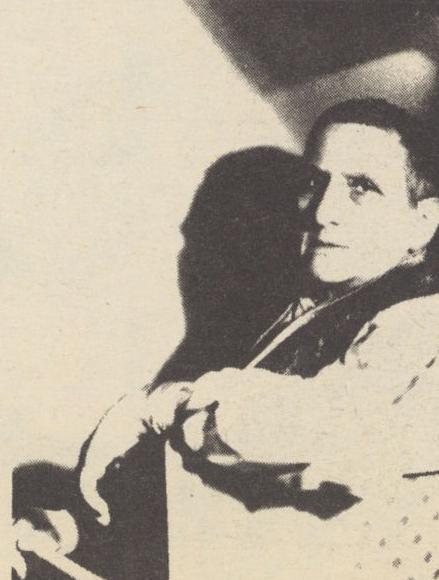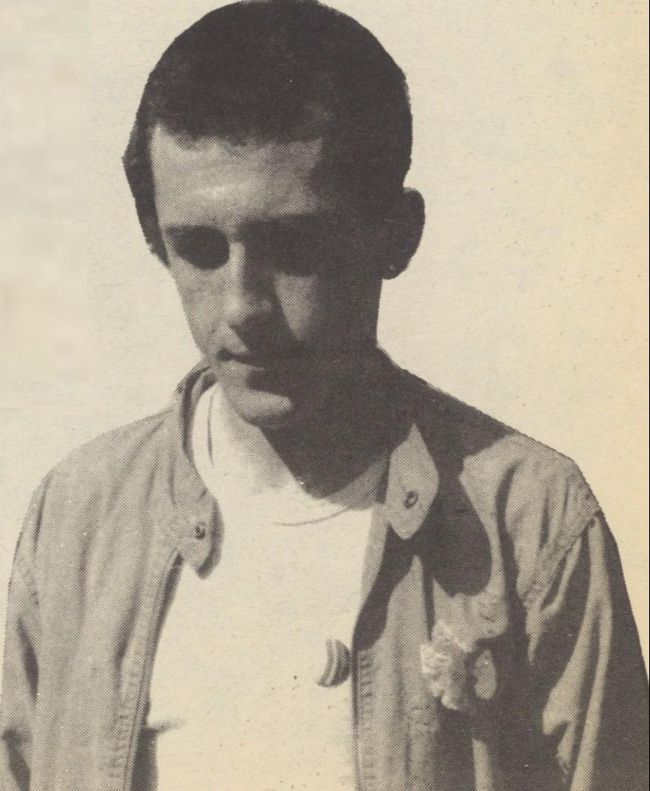books

Illustration by Debbie Ryder
SWEET DEATH, KIND DEATH
by AMANDA CROSS
VIRAGO
PRESS 086 068 4830
PRICE £5
Kate Fransler, Professor of Literature and amateur detective, is invited to Clare College, New England, ostenably to contribute to the task force on Gender Studies. However, her real objective is to investigate the death by drowning of Patrice
Umphelby, historian and novelist. Was it Murder o r Suicide? Patrice had been vocal on her distaste for old age and professed to be "in love with death". During her lifetime Patrice's slight eccentricity and certainly her feminism had antagonised many of her fellow academics. Her biographers, Herbert and Archer, suspect one of them of murdering Patrice.
As a crime novel this book is slow and unexciting with little in the way of thrills. However, the author, herself a university Professor, does depict life in a women's college with some humour. She also details the thoughts of a woman in her fifties on her approaching old age and argues that it need not be merely a time for nostalgia.
Mary Walsh
LECTURES IN AMERICA
by Gertrude Stein
086068 991 3
Price £7.50/pb
Gertrude Stein was born in 1871. She moved to France in 1903 and lived there until she died in 1946.
This book was published in 1935 and was based on a series of six lectures Ms. Stein gave on a tour of America in 1934.
In the first of the essays Ms. Stein writes "I am trying not to give myself but to you a feeling of the way that English literature feels inside me". This is indeed what she tries to do and not just in relation to English literature but also with her other favourite subjects - drama, people, the essence of style and grammar.
Throughout Lectures in America I found a strong desire to work with the language like sculpture, questioning how prose and poetry are built up and finding the limits of their versatility.
The ideas I gathered from these essays may not have been the main themes of the author; my lack of knowledge of modern art, and of literary history and style left me occasionally lost. Another problem was that Ms. Stein's method of writing can be confusing. She writes in a manner which some people would feel drawn out. I think she herself would have called it insistent. In her essay "Poetry and Grammar" Gertrude Stein explains that "When I first began writing I felt that writing should go on and if writing should go on what had colons and semi-colons...what had commas, what had periods...to do with it."
The language is for the most part simple.
I found that by reading the essays as if they were being spoken I could not only make good the apparent lack of punctuation but give the seemingly repetitive phrases that made them insistent and not, in fact repetitive.
A stimulating book and very enjoyable for those with an interest in writing.
Bemi O'Dea

© BBC Hulton Picture Library
NICARAGUAN SOLIDARITY
"What is unique and so encouraging about Nicaragua is that lesbians and gay men are not marginalised politically, they are working alongside the state for the revolutionary transformation of society. Our solidarity is essential if this process is to be allowed continue. In return we have much to learn from another small country struggling to decide its own future free from imperialism. This international solidarity has been described by Tomás Borge as 'the tenderness of the peoples'".
Thus writes Kieran Rose in a chapter on Lesbians and Gay Men, from the shortly to be published Nicaragua: An Unfinished Canvas.
Rose, a trade unionist and gay activist of high standing, recently took part in the First Irish Coffee Brigade to Nicaragua. The visit afforded him an opportunity to meet the lesbian and gay group in Managua.
GCN will be carrying a review of Nicaragua: An Unfinished Canvas plus an interview with Kieran Rose and other contributors in a future issue.

Kieran Rose
photo: Tony O’Shea